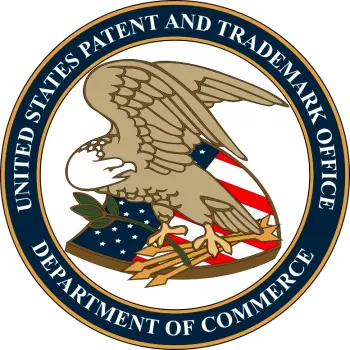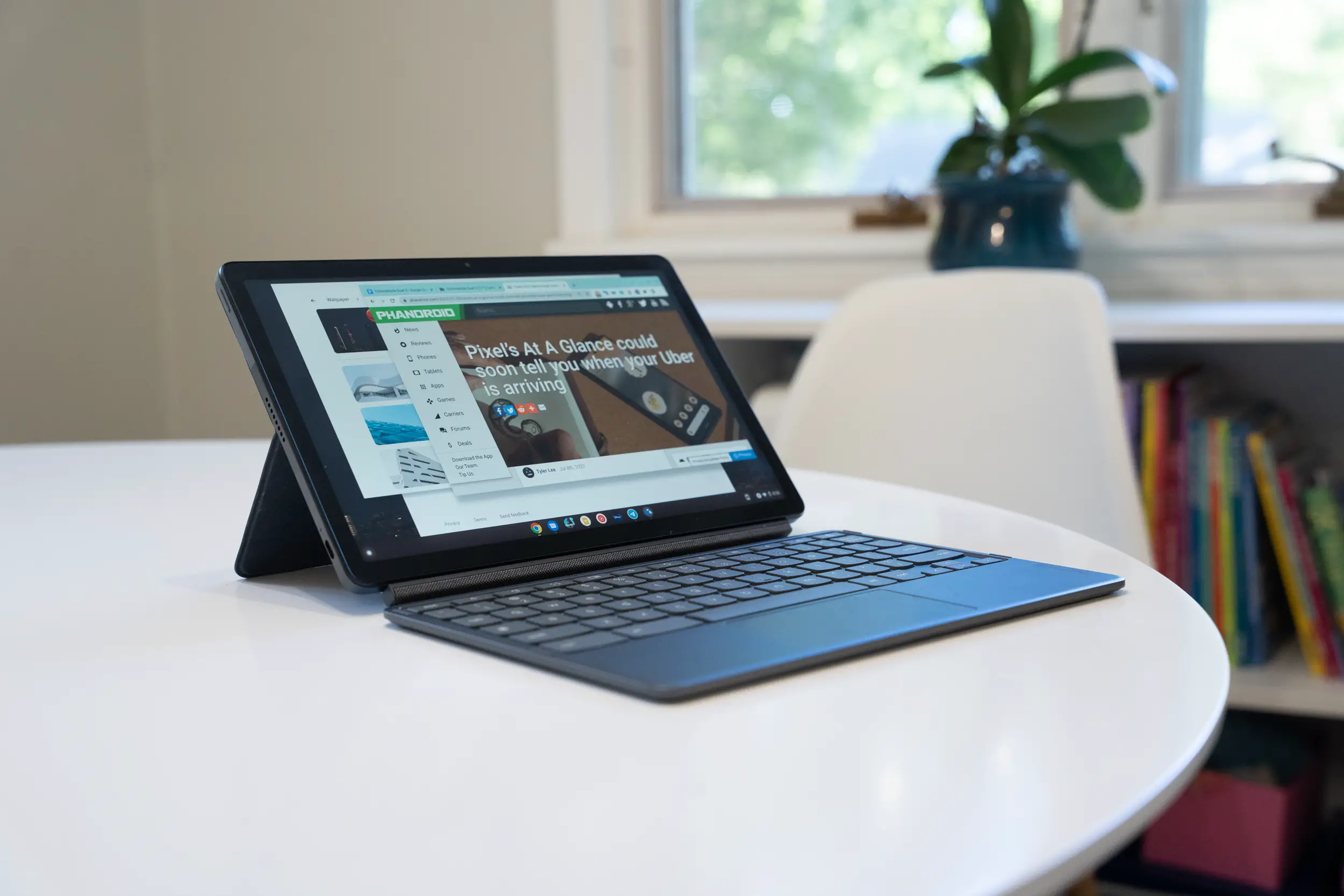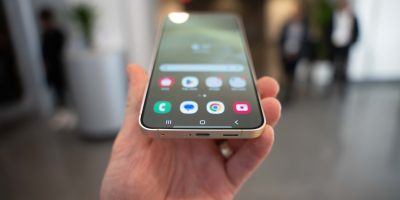If you think the United States Patent and Trademark Office is anything short of a complete mess in regards to tech patents, than you’re sorely mistaken. If you think everyone besides your favorite OEM is the culprit behind eroding tech innovation, than you should take off your fanboy hat. But I think the vast majority of tech enthusiasts can agree that the patent war movement – where thousands of very general protective patents are submitted, awarded, and litigated upon – is suffocating innovation.
 But how can we change the patent system? We’ll always have huge corporations with tens of millions to spend on legal fees and patent submissions. The USPTO will always have a mile high stack of dozen page long patent applications to process, so complicated you would need an Adderall prescription to even understand the claims. And then of course there is the already long-running list of approved patents for which combing through would be a nightmare.
But how can we change the patent system? We’ll always have huge corporations with tens of millions to spend on legal fees and patent submissions. The USPTO will always have a mile high stack of dozen page long patent applications to process, so complicated you would need an Adderall prescription to even understand the claims. And then of course there is the already long-running list of approved patents for which combing through would be a nightmare.
I’m no government policy expert, but I think it’s fair to say that something needs to change. Half of the patents being approved are nothing short of embarrassing. But identifying and diagnosing the problem are much different than finding and prescribing a remedy. That’s the hard part.
Any regular Joe can create a petition on Change.org, but the petition by Mike Winmill in regards to Apple and the USPTO caught my eye when it came across my news desk. Is the patent war topic finally hitting more mainstream consumer irritation, or has it simply become the focal point of tech fanboys beating the drum of their master? Let’s be honest, Phandroids, Apple isn’t the only company whose patents catch our eye (and again, can we blame them?).
In some regards, it’s hard to blame the manufacturers themselves. The tech landscape is incredibly competitive and to get ahead, you do what works. They’re investing hundreds of million in R&D so to spend some of those millions on patent protection seems reasonable. On the legal side, if your job is to protect intellectual property than you apply for anything and everything you could possibly be awarded: that’s what a good business person would do. So the sheer volume of patents coming in creates quite the labor for the USPTO whose job is to govern and make fair the competitive landscape. And based on the results, it doesn’t seem as if they’re doing a very good job.
I admit, I feel guilty pointing a finger when I’m:
- Not 100% sure of the entire process and system the USPTO employs
- Don’t have any direct input on how to improve said mysterious system
My only input comes from seeing some of the many approved patents and immediately thinking to myself, “How can someone patent that? That’s ridiculous! Stupid [insert company here]. Stupid USPTO.” I think that’s the same flow every tech fan finds themselves going through lately.
So let’s put the obvious aside:
- We know companies are applying for patents by the thousands, often more general than anyone would like.
- We know the USPTO is approving patents by the thousands, often more general than anyone would like.
But what specific measures, restrictions, laws, or systems would you put in place to directly improve the fairness of the US patent system while balancing the rights to protect intellectual property and still promote innovation and competition? This is your chance to sound off… make it count!
As suggested by Kevin Krause… a related video worth watching (series link):











Well said and written…
How? Ban Apple, that’s how.
Cancel all patents owned by Apple and problem solved. No more lawsuits over stupid obvious designs like round corners.
Simple for my simple mind. Turn the USPTO into a Not For Profit entity not ran by the Gov’t. People employed by a NFP company would most likely make better decisions
Until they realize that big business can provide them some extra cashflow.
“Oh your car is having problems? Here, take my Benz. No no, you keep it.
Oh! By the way, I have this totally legit patent, maybe you could push it through? Here are some Superbowl tickets. Enjoy.”
Just saying.
That can happen anywhere. Corruption isnt specific to one field. I see people working for a place like the USPTO that does it for the right reasons and not the paycheck (even though Not For Profits make great money) would make decisions for the better than the worse
I think I’ve said this before in a previous article…
Fire those lazy bast**ds that pass every patent that comes their way and get a checks and balances system when passing patents (have multiple offices pass the patent).
Also, get new patent redundancy/ambiguity laws to prevent universal stuff like rounded rectangles from ever being patented.
maybe hire some people who aren’t a complete idiots over there….
“who aren’t a complete idiots…”
It’s simple really. Just don’t allow patents to be issued for things which are obvious (like rounded corners) or for things which any reasonable person could have come up with (for example slide to unlock), but since the patent office apparently doesn’t have any common sense, then I would resort to simply requesting the President of the United States issue an executive order that going forward, the patent office may not issue any patents for any electronic device or computational method. period. all other things can be patented…. these are just ideas.
I also don’t have a deep understanding of the inner workings of the USPTO or its processes. That being said, I believe The perfect solution doesn’t currently exist, and I don’t believe can exist in today’s day and age. However, I believe there could be a great deal of improvement if an overhaul of the USPTO consisted of the creation of approval committees, whose members are elected or appointed, either by the people or by the government. Each committee would be made up of members who have experience and knowledge of whatever field said committee covers. For example, a committee covering the approvals of patents pertaining to automotive innovation would have the requirements of a high end degree in a closely related field, and/or a set number of years of working in a closely related field. Additionally, potential members may not work for or hold any position with a company that would be applying for patents in that committees purview.
I would go so far as to say that members could be drawn from the ranks of College/university faculties.
Again, I know this isn’t a perfect idea, and I’m sure there are plenty of flaws, so feel free to add ideas to improve upon it.
If, sometime in the future, this idea is adopted, then I want credit!! ;-P
Seems to me it should be simple using something like the SMART acronym:
Specific: explain what it does in detail not vague, plus even dimensions/ style. No claims its identical.
Measurable: how it achieves its outcome. I would be putting the technical details here. If you can achieve the result two different ways you would need two patents. This allows for competition.
Attainable: a working prototype. This would protect against the “it might happen one day so let’s do a patent” crowd.
Reasonable Person Test: can this only be interpreted one way, if a normal person believes it’s ambiguous, then the patent needs to be more detailed e.g. “Can improve visibility in the dark” could mean candles, lights, unclouded sky, etc. which would mean that isn’t a valid patent.
Timeframe: specify when this patent is to be acted upon, which should also be capped. If a patent holder hasn’t shown they are earnestly working towards it, patent rights expire.
So I did change the R (normally stands for Relevant) but it would be a starting point.
That’s actually how the patent system SHOULD work for the most part. Sadly I don’t see how many of the broad patents that have been issued lately fit any of that. I think that acronym should be pasted on every wall at the USPTO though just to remind their agents to actually be “smart” when approving a patent.
design patents shouldn’t be valid, wouldn’t that be what trademarks and copyright are for?
and software patents should also be treated more like copyright.
the way software and design patents are used now is way too vague, a patent for software or a design can be used against anything vaguely similar while they should only be used when it is against a clear attempt at copying.
as an example: the rounded rectangle patent.
many devices violate it while the manufacturers aren’t even trying to make them look like iPads.
1 element of a design shouldn’t be patentable, companies should only be able to protect a combination of design elements(such as “a rounded rectangle in portrait with a single home button”) or elements that are particularly identifying(like the jaguar on the hoods of some jaguar cars, and the Apple logo on iDevices) which are already protected as trademarks.
and software falling under copyright would still protect it from stealing directly(both code and graphics) without having to get in the way of anyone programming something similar on his own.
I do believe in Europe software can’t be patented, so it’s possible to see what effect it would have if they’d get rid of software patents.
(there seem to be exceptions, but those are only for really inventive problem-solving stuff and not for little graphics effects)
I do believe that a complete reform is necessary but I also think the easiest solution would be that any company that owns a patent should be required to actively be using said patent. This might not shut down Apple and it’s madness but on a larger scale, this would prevent “Patent Trolls” from owning patents and collecting licence fee’s when they themselves don’t actually produce anything.
For complete reform, patents need to be specific. You shouldn’t be allowed to patent shapes. If Apple wants to patent the iPad it should be specific to the exact dimensions of the iPad and everything inside of it. Because honestly, no one goes to a store looking for an iPad and wakes up the next day angry because they ended up with a Galaxy Tab. No one gets confused like that.
plenty of people would, but that’s because the iPad has become so popular it has become synonymous to tablet for a lot of people.
just like iPod and mp3 player, iPhone and smartphone, and gameboy and portable game computer.
I’m sorry, but I do not believe that. No ones walks into a store spending $400-$1,000 on an item like a tablet and not know what it is. No one thinks Samsung makes Apple products or Acer or Asus. Especially when products are clearly marked. On my Samsung Galaxy Tab I bought, the 7″ and 10.1 it clearly states Samsung on the box. When I bought my iPad it clearly states iPad on the box and Apple logo, not too mention it cost several hundred dollars more than the competition.
When I bought my Asus Nexus 7, it clearly stated this on the box. No one walks into a dealer to buy a Honda Odyssey and walk out with a Nissan. If so, then maybe they should be admitted for psychological evaluation.
Now I will give you that people might call all mp3 players a iPod or all tablets a iPad but they still know the different brands, they just believe they are all called that. Just like in the South some people say give me a coke but they don’t want a coke.
The people who are so technically unsavvy enough to mistake a Galaxy Tab (or any other Android tablet) for an iPad are also probably the kind of folks who wouldn’t care if they did since to them a tablet is a tablet, or an “iPad”. I’ve never heard of a singe case when a person mistook and Android tablet for an iPad; at least not a person that cared enough to splash their recognition issue all over the news anyway.
I find the whole hypothetical situation highly unlikely.
Apparently Apple execs and lawyers get confused since they are the only ones that complain about that specific problem. I mean heaven forbid if they accidentally bought an Android tablet instead of an iPad!!
With some other folks here.
Have to have a working product. Can’t patent ideas it design.. Real functioning products.
If you are pantening a rectangle touch screen tablet, it has to be included with the application, or be made available on demand.
If you are awarded patent, it has to be produced and sold in relative mass quantities within a certain amount of time.. I.e. 3 years.
If it’s not, patent revoked.
If you stop selling your product for give years, and someone can prove you no longer are selling a product with that patent, content revoked.
Up the fees, too. Sheez. Drop in the bucket.
I obviously didn’t put a lot of thought into these… Heh.. But really, the point is.. If you’re not gonna make it and sell it, then you shouldn’t get to hold the patent forever.
I am all about someone being rewarded for innovation … But to a point, mankind is being hindered and held back because someone holds the patent they plan never to use.
I’m not a patent expert, but I do believe common sense needs to be used and a working product should be submitted. No coming with an idea that you can’t make, or hope to make 20 years later. They could also maybe have a shelf life of 5 years like medicine. Drug companies are given 5 years to make as much money as they can before a generic can be made, so, maybe the patents for technology could be the same. You should not be able to patent round corners, or colors unless in combination. For example, if you want to patent a tablet, then you should list the shape, weight, color, dimensions and logos, so maybe the next tablet company can’t make the exact same product and only replace the logo with theirs, that way another company can’t live off the sweat and money spent on R&D from another company unless the 5 years is up.
I beleive a lot of this is already covered by trademarks and copyrights.
I also agree with the poster below, there should be no profit involved for the patent office, that way they can’t be bribed.
I do see an issue with the part about needing a working product.
what if you invent the technology for warp/subspace travel but need a material that can’t be found on earth?
then you wouldn’t see a dime for your work because Nasa would snatch the idea away from you the moment they find a decent amount of the material on a planet or asteroid.
or a different example which is more common: what if you have a brilliant idea but not the money to produce a working prototype?
big companies won’t be in such a situation, but an independent inventor could face this problem.
bringing your designs to a big company without patenting them would give big risks of them running of with your idea.
My suggestion is not perfect by any stretch, but it’s a start. If you come up with a brilliant idea, and no money to produce it, then you need to find a company willing to provide financial support.
Now, your other comment is a little far stretched such as inventing technology for warp/subspace travel but need a material that can’t be found on earth. How would you come up with something based off of something you don’t have or doesn’t exist. How would you know what material you need?
the problem with finding a company to provide financial support is, as I said, the risk that they run off with your idea.
as for the warp thing: it’s actually the situation right now.
the basic theories are there, but some materials are needed that theoretically would exist, but haven’t been found yet.
but there’s also the possibility that enough of a material is present on earth to determine it can be used for a certain purpose, but not enough for a working prototype.
an example of a resource like that would be antimatter.
it can be produced, but at this time it’s too hard to produce and contain to make it usable in projects like antimatter based propulsion, but that doesn’t mean you can’t design an antimatter engine.
and because Nasa is currently working on ways to capture naturally formed antimatter there is a good chance that it can suddenly become much cheaper to obtain.
It won’t happen. Too many companies like Google, Apple and Microsoft are at the top of the patent food chain and have accumulated so many patents they won’t want patent reform. All 3 thrive on patent licensing and have spent millions in acquiring patents from other companies. To junk the system, those major companies would lose billions in revenue. The system is too far gone to fix.
To some degree it comes down to manpower with the requisite skills to judge the requests. I don’t know how you get that in a bureaucratic environment.
I think penalties may need to be enforced for making clearly spurious requests. Shapes and sizes simply should never be allowed to be patented unless it somehow affects function. The shape of a tablet is clearly derived from computer monitors which were derived from televisions. There’s nothing innovative about the shape.
1) Place a 2-year moratorium on all consumer patent applications & enforcement related to software & consumer technology, and see what happens. If innovation grinds to a halt, there was never a problem to begin with and we can reinstate the current system.
2) If instead (as we all know would be the case) the tech world continues with business as usual, extend the moratorium indefinitely.
The system is so broken they may as well just get rid of it completely. Patenting something offers little real protection against someone with deeper pockets stealing it from you anyway, and it flat out gives your IP to anyone in China who feels like ripping it off. Instead of the defensive system it was intended to be, the patent office has become an offensive system enabling big corporations to engage in anti-competitive behavior and bleed smaller budget innovators dry with endless litigation.
Anything with solid proof of prior art should not be patentable.
Well one thing I see as a problem is the way the system is designed. The patent process is quite 1) expensive, and 2) complicated, and when I say complicated I mean you pretty much have to be a patent lawyer to understand all the ins and outs. The application process involves an initial application plus application fee. And the application requires professional drawings depicting the proposed patent. And if you want to make sure all your bases are covered then you need a patent lawyer, and they won’t be cheap either since a patent lawyer can go for as much as $18,000 per patent. And after you’ve done all that then you have to pay the “processing fee” to get the patent issued. If you apply for the patent and don’t pay the processing fee then the patent is “pending”, hence those “patent pending” advertisements.
If I recall correctly from my college professor then to get a patent, and in doing so do all the work yourself (the required drawings, preparing the application, submitting) then you’re looking at $5,000 or so in costs. That may vary depending on the type of patent as software patents go at different rates than mechanical patents and other types of patents.
And a lot of inventors will simply sell the patent to a big company. The company pays the patent fees, and gets the patent issued, and the inventor get’s paid (usually a lump sum, royalties are quite rare from what I’ve heard) for the patent rights. So companies get their hands on patents and then stockpile them like ammunition in an arms race in the tech world.
Also patent consortiums are quite destructive. They exist with the single purpose to find infringing items and litigate them. They hoard patents and sit on them, doing nothing to further innovation or protect inventors. I think patent consortiums should be broken up or at least severely limited.
And I saw a proposal I think is more adequate for 21st century technology. Many patents are 20+ year deals that gain longevity by getting extended. But the pace of technology makes most technology from last year irrelevant. So especially on software patents they should have a lifespan of 5 years and then expire to allow all to further growth in the tech industry. 5 years would give a tech company plenty of time to dominate the market with a patent (just look at how far the iPhone has come in 5 years as an example). After all patents weren’t ever intended to have perpetual effectiveness, they were designed to give an inventor a means to protect and make a profit off their work without it being stolen from companies or others who would drive down price and stifle inventors from even inventing in the first place if they could never expect to make a profit on their works. But after the patent expired the invention would pass into the public domain and especially if it was a revolutionary technology then all of society could benefit from the new technology. So Inventors win and society wins. The way it works now companies have a stranglehold on patents (most of which are becoming less innovative and more patents on details, or a “look and feel”, or the way each nuance is presented) and they use them to squash the competition. The big boys can play (Apple, Samsung, Google, Microsoft) but the small companies fall by the wayside and most we never even hear of.
The saddest part about the whole failed system is that individual inventors aren’t protected, and companies abuse the patents as weapons to hurt competitors.
Shorten the protection period to 2 years for any mobile technology